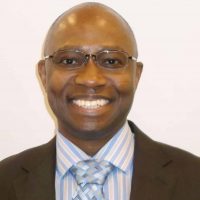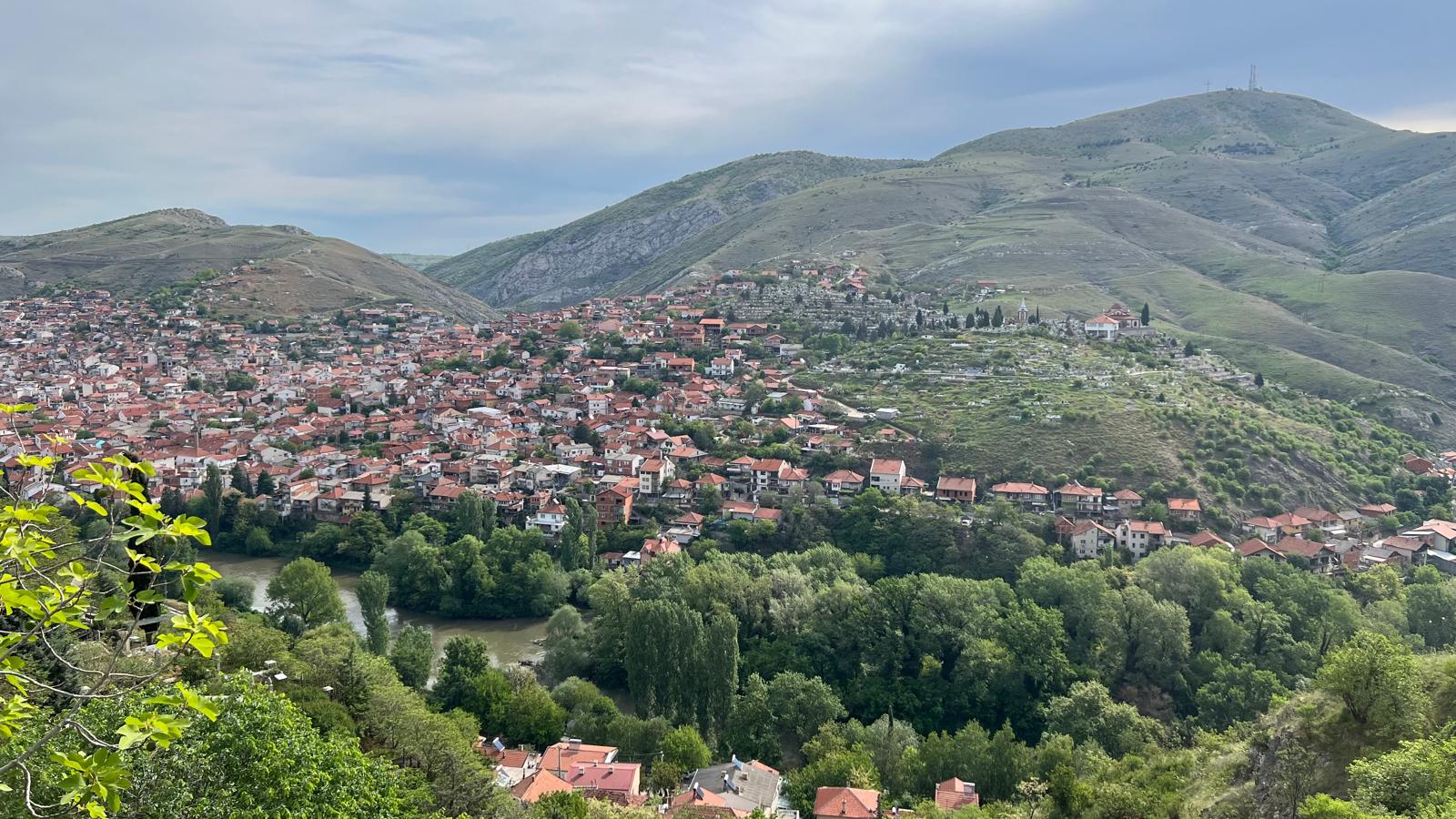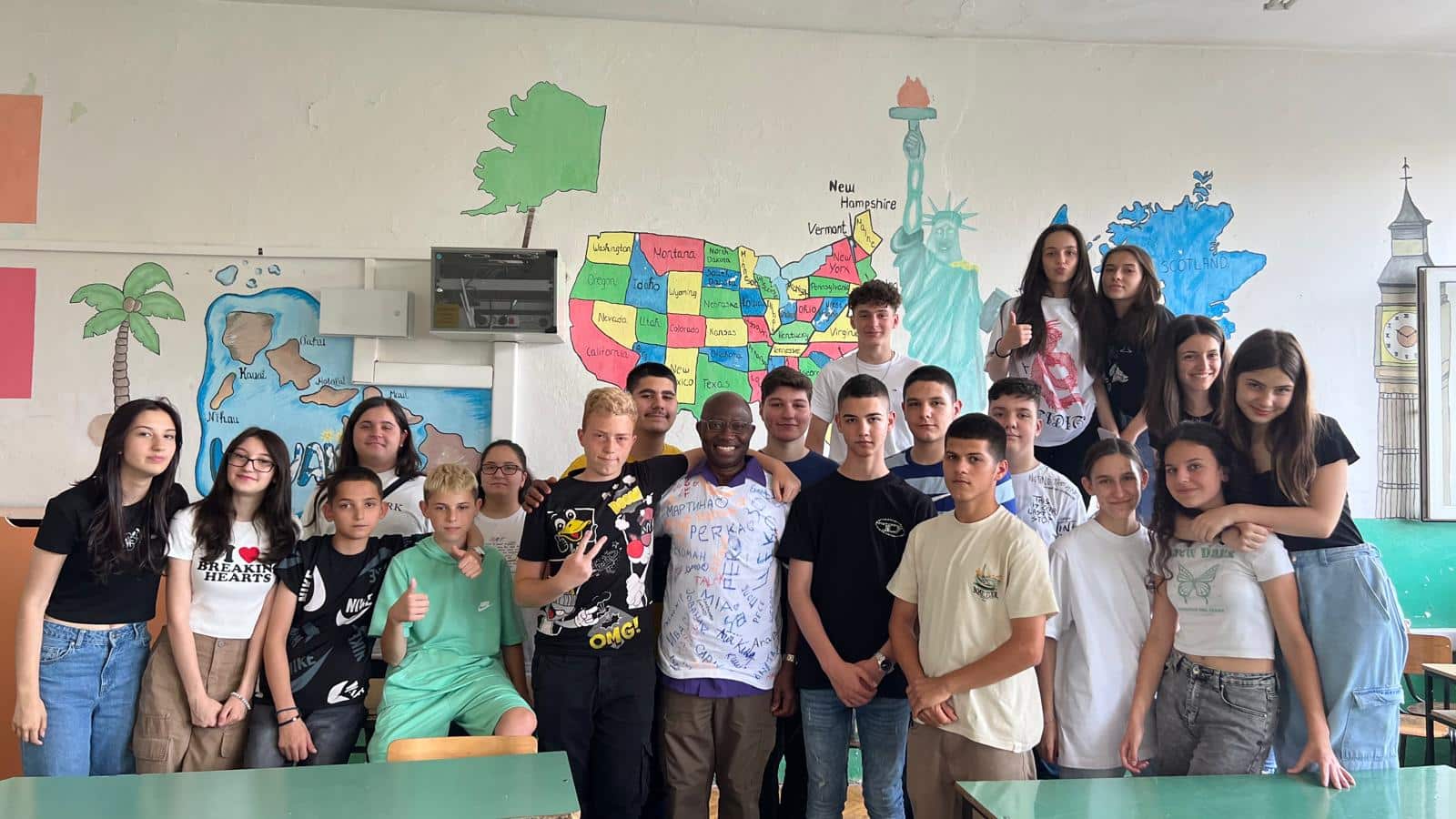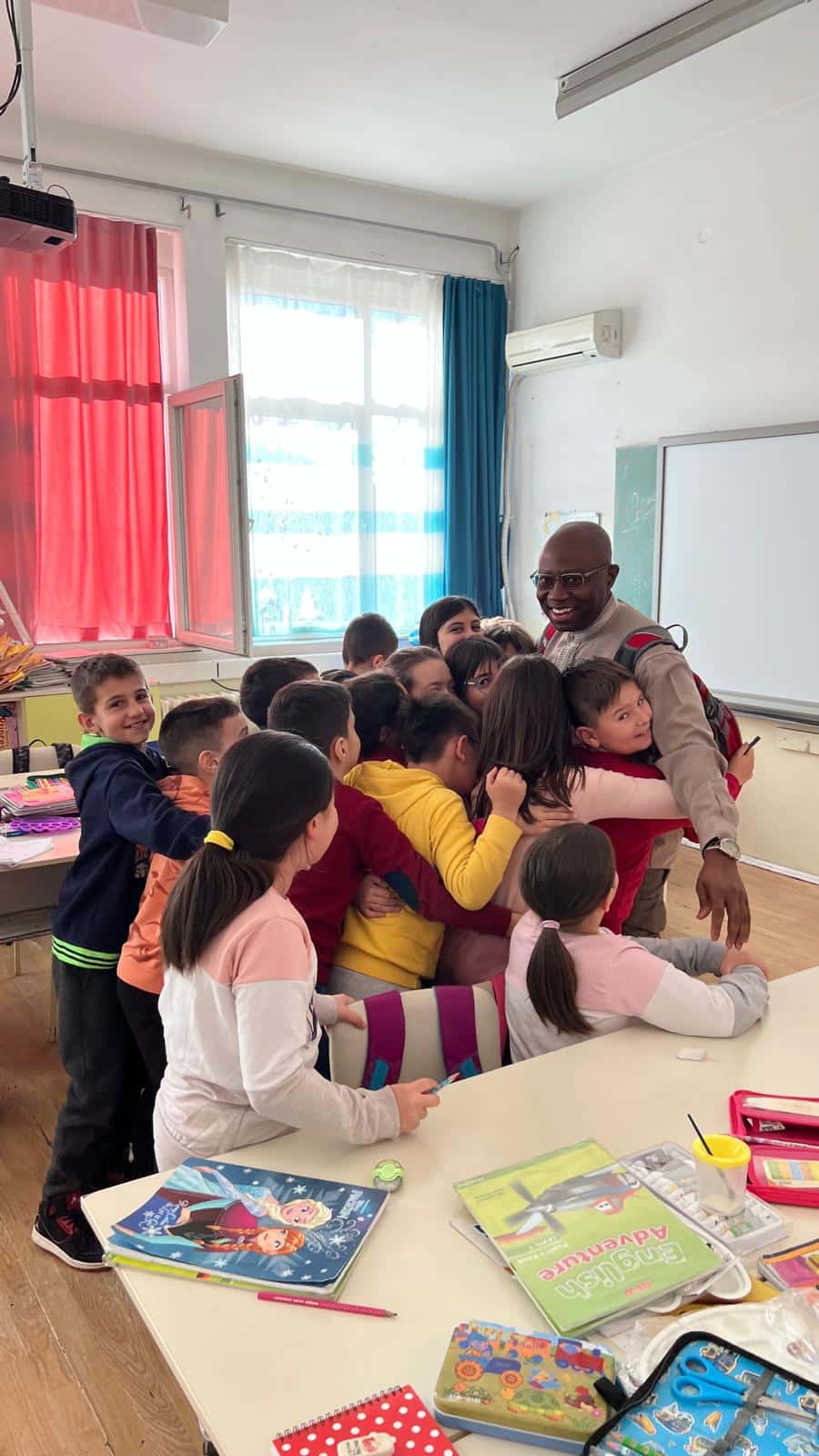I arrived in North Macedonia in September 2022 as a Peace Corps Volunteer with the first cohort to the country after the COVID-19 pandemic. I was stationed at Veles, a town in the center of the country which is ensconced by mountains (the citizens call them hills) on all sides and traversed by the Vardar River. With houses clinging to the sides of the mountains like vines entwining a tree, the views of the town were bewitchingly breathtaking.
Soon after arrival, I found out that there was a general perception in the community that Black people were unintelligent, thieves, lazy, promiscuous, drug dealers and violent. As the only Black man in a community where my color made me a “dangerous” element, I knew that the narrative had the potential to negatively impact my overall experience but I was unfazed by the challenge.
I always consider my glass to be overflowing even when it is totally empty, so I made a decision to turn the stumbling block into a stepping stone. If a caterpillar can evolve into a butterfly, I could transform the liability into an asset and thrive rather than wither. Through inquiries, I discovered that peoples’ notions about Black people were mainly driven by movies, online content and long held tropes about dark skinned people.
With this knowledge, I deployed a positively unoffended and unflappable approach to the initial subtle provocations, derision and ignorant curiosity that came my way. I was called names like nigger, monkey, watermelon, thief, scammer, terrorist, Escobar, Hitler, etc. I chose to not engage in any fruitless arguments but to let my ways and lifestyle be the ambassadors of who I was as a Black man. I made it known that I ate the local delicacy, Ajvar, with eggs every day. I said yes to anyone who asked to take a selfie with me anytime, anywhere. I sang for the students on their birthdays.
Growing up I was taught, “That which is beautiful, gets looked at the most, because people don’t spend their time looking at ugly things.” So, in the community, whenever people stared at me like an oddity, I used the opportunity to say hello to them with a million-dollar smile and strike up a conversation whenever possible. Through that, I made many friends on the streets of the town besides the students and their families. And with statements like, “There is no one like me in town” and “I am the unicorn of this town”, I portrayed the uniqueness of being different and made it clear that I was comfortable in my skin and content with who I was.
One afternoon during my first month, I was walking down main street when four young boys started whistling and catcalling, “Hey nigger, where are you from? Nigger, what do you want here, nigger?” I turned around, walked to them with a smile and with my hand outstretched for a handshake I said, “Hello, my name is August. If you are calling me nigger because you don’t know my name, now you know. What are your names?” With faces drenched in surprise, they shook hands with me and told me their names. I told them I was a Peace Corps Volunteer from America and was in the town as an English teacher. One of them who spoke perfect English and did most of the talking said they had heard that I was from Africa. I told them I was born in Ghana but was now an American.
After answering many questions from them, I asked if they would be at the same place the following day and they responded affirmatively. I said, “As a teacher, I will come back tomorrow so that we can have a test about our names. I will say all your names and all of you will say just my name.” They agreed and I had them repeat their names for me. The following day, when they saw me approach, they greeted me with “Hello August” as I also correctly gave each of their names. After that encounter, I met them on other occasions but they never called me nigger again. In fact, if there was someone else with them, they took the initiative to introduce me.
With other experiences like being trailed in stores, being asked for identification multiple times by the police, being asked, “I know Black people don’t have IQ but did you get one when you were in America?” and “That is a nice backpack and I know Black people are thieves so did you steal it in America or here in Macedonia?” I relearned a basic truth: the challenge about racial identity is not country-specific but a human problem that happens everywhere in the world under different designations.
The main strategies I used to handle the identity issues with a growth mindset and come out undaunted, undeterred, and undamaged was the following: I espoused a generous disposition by accepting that some people don’t always realize the inimical impact of their prejudiced actions towards people of different identities. I approached all situations with a positive attitude to open the door for candid engagement since a flower garden attracts butterflies while a patch of thorns does not. Then, with a patient spirit, I gave myself time to know and be known, to understand and be understood. I could not control what people said about me or change minds that weren’t ready to change, but in all encounters, I was measured in my responses, prudent in my actions and sought to build bridges.
Sooner than anticipated, people warmed up to my presence in the community. When I first arrived, things seemed like midnight. But I believed in sunrise, and today it is like midday!






